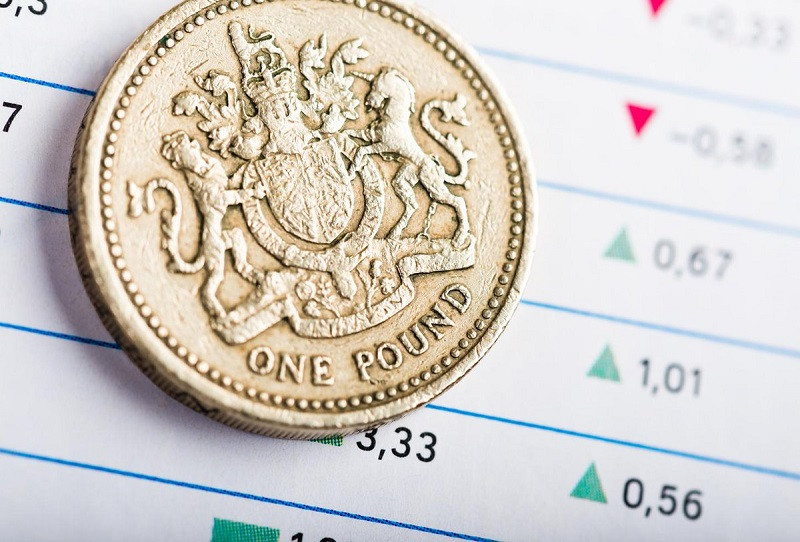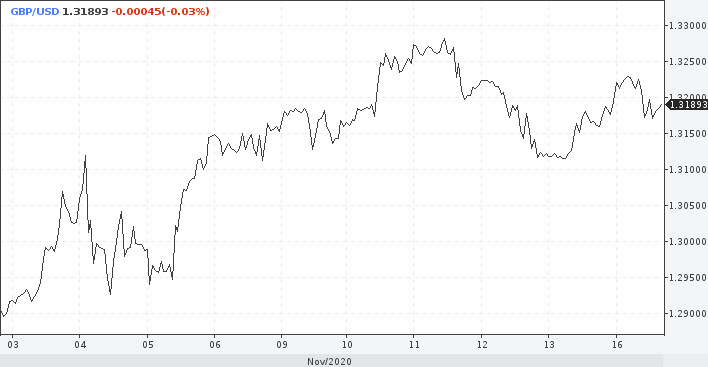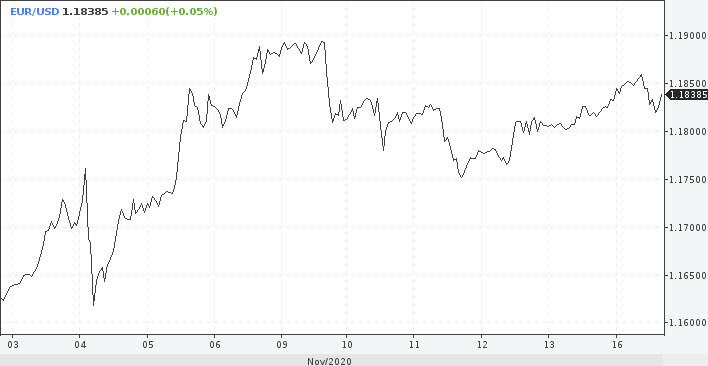
On Monday, the British pound fell slightly, despite risk appetite being boosted by strong Chinese economic data and news of progress on the COVID-19 vaccine. In general, a positive attitude to risky assets should play in favor of the sterling, unless the political crisis worsens with the country's exit from the EU.
As one of Boris Johnson's most influential aides quit, Brexit problems mount. Dominic Cummings, who drew up the plan for negotiations with the EU, announced his departure at the end of last week. The negotiations are not yet complete, and it is not clear where Boris Johnson might end up. The British Prime Minister is under pressure from influential members of the Conservative Party. They want to force him to change his position in the negotiation process and take control of the situation with the pandemic.
The transition period for leaving the EU, meanwhile, ends on December 31, and one of the European senior officials made it clear on Monday that it is too late to conclude a trade deal with Britain. There may be problems if the situation doesn't get off the ground in the next week or 10 days. Johnson replied that his country would thrive with or without a deal—another verbal salvo from both sides. Meanwhile, investors continue to believe that a deal will be reached.
According to currency strategists, "It seems that the market is preparing for a deal at some stage." In addition, they admit that the departure of Dominic Cummings may play a positive role here: Britain will be more willing to compromise. Perhaps the parties are preparing to conclude a deal this week.
After Moderna reported positive coronavirus vaccine trial results, the UK began negotiations with the company regarding access to the drug.
Moderna is now expanding its European supply chain. This means that the drug will be available to the British in the early spring of 2021. The government gives preference to deals with the developers of vaccines that are not only advanced, but also would have guaranteed early shipment to the UK. This was announced by a spokesman for Prime Minister Boris Johnson.

The dollar index remains in a bearish trend, short positions will still be relevant. Morgan Stanley forecasts that the US currency index will fall by 4% next year. Faith in vaccines holds out hope for a faster recovery in the American economy. On Monday, Moderna declared 94% effectiveness of its experimental coronavirus vaccine. This result far exceeded expectations and was even better than Pfizer's.
The US Treasury Department is currently holding a $ 61 billion bond offering. Purchases of securities by the Federal Reserve amount to $ 6 billion. There are much more purchases from the Ministry of Finance, which may cause short-term demand for the US currency. Furthermore, the operations of the financial Department and the Fed will increase the amount of dollars in the system, which will put pressure on the greenback. On Monday, the EUR/USD pair is undergoing a slight correction, after which the upward trend will resume.

Societe Generale analysts are bullish on the euro. In their opinion, the growth will be facilitated by the continued reduction of spreads between the yields of the main and peripheral Euroblock government securities. Thus, the November high of EUR/USD at 1.1920 will be the last obstacle to the long-awaited breakout of the 1.20 level.
In the fourth quarter, lockdowns will undoubtedly slow down economic activity in the region. However, the most important thing now is confidence in the prospects for the next year. A potential vaccine against coronavirus needs to support the economic recovery.





















